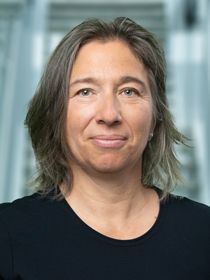Rising temperatures during summer and an increased frequency of extreme weather conditions call for measures to be taken in town and country planning. India is as well confronted with extremely high temperatures and wide-scale flooding. Given that, Europe and India seek to find out and discuss what they can learn from each other concerning the matter.
European and Indian experts are invited by and to Danube University Krems to discuss related topics in detail within the scope of the EU funded Erasmus+ program “Building Resilient Urban Communities” (BReUCom) on 28 and 29 September 2019. Danube University Krems coordinates the international project and stands in cooperation with international partners from India and the Netherlands to target on a paradigmatic shift in the education of graduate students in spatial planning and design. Open Educational Resources are produced by developing 10 comparative case studies which are based on real-life problems. Furthermore five courses on the topic Urban Resilience shall be piloted and integrated in existing curricula. Hereby, heat protection plans and “sponge-city” concepts are taken into consideration. The second mentioned aims to handle heavy rainfalls in the cities in more effective ways.
Future urban planning faces manifold tasks
India’s low income families are particularly affected from heat waves, flooding or sea levels rise as a consequence of climate change. Often they live in informal settlements located in exposed areas and are therefore, especially due to the use of non-durable building materials, vulnerable to catastrophes. Whoever regards these informal settlements – colloquially referred to as “slums” – as a phenomenon only becoming apparent in developing and emerging countries is mistaken. Such settlements also arise amid the EU by reason of social polarization, ethnical segregation and marginalization. The project BReUCom as well turns to research this issue and will bring it to discussion during the symposium held at Danube University Krems on 23 and 24 October 2019.
Symposium: Bilateral exchange between Europe and India on climate change
Date: 28/29 August 2019
Opening: Seminar room W 1.06, Danube University Krems
Project: Building Resilient Urban Communities (BReUCom)
Duration: 15 January 2019 – 14 January 2022
Funding: EU/Erasmus+
Head of project: Tania Berger
Partner:
School of Planning and Architecture, Vijayawada, Indien
School of Planning and Architecture, Bhopal, Indien
National Institute of Technology, Hamirpur, Indien
Society for Promotion of Area Resource Centres, Mumbai, Indien
Centre for Urban and Regional Excellence, Delhi, Indien
Kamla Raheja Vidyanidhi Institute for Architecture and Environmental Studies Mumbai, Indien
Universiteit Twente, Enschede, Niederlande
